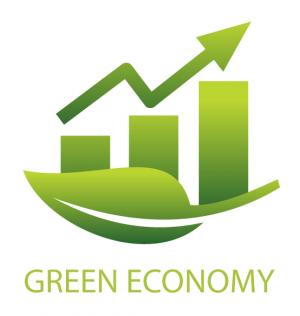Sustainable Transport Award - Buenos Aires
Description
Source: Institute for Transportation and Development Policy
The City of Buenos Aires has successfully implemented two key projects to contribute to sustainable transport: the first BRT (Metrobus) and Bike Sharing System (Mejor en Bici) in the country. Metrobus, launched in May 2011, is the first bus rapid transit system in the city and in the country. It operates 24 hours a day, 365 days a year, with a 2 minute frequency during peak hours and between 2 and 4 minutes off peak. Night service is every 10 to 15 minutes. Fares are equal to those of regular buses within the city. Metrobus travels 12km one way and avoids unnecessary transfers. There is already evidence of a reduction in travel time and increase in the number of passengers.
The city has also developed the on-street bike lane network across the city's central area, connecting key transport hubs, office buildings and universities. The network will soon be reaching the catchment area. To ensure cyclists' protection, the city also implemented segregated bike lanes from car traffic, as well as traffic calming devices at intersections. Bicycle parking is also located throughout the city along roads and near public buildings. The city launched a successful bike share system on 1st December 2010, with 72 bikes and 3 stations. Over the first 20 days there was an average of 110 bike trips per day, 670 overall bike trips and 850 users. As of October 2011 the system has grown to 700 bikes, 20 stations, an average of 2,500 daily bike trips, 260,000 overall trips, and 25,000 users.
SDGS & Targets
Goal 8
Promote sustained, inclusive and sustainable economic growth, full and productive employment and decent work for all
8.1
8.1.1
Annual growth rate of real GDP per capita
8.2
Achieve higher levels of economic productivity through diversification, technological upgrading and innovation, including through a focus on high-value added and labour-intensive sectors
8.2.1
Annual growth rate of real GDP per employed person
8.3
Promote development-oriented policies that support productive activities, decent job creation, entrepreneurship, creativity and innovation, and encourage the formalization and growth of micro-, small- and medium-sized enterprises, including through access to financial services
8.3.1
Proportion of informal employment in total employment, by sector and sex
8.4
Improve progressively, through 2030, global resource efficiency in consumption and production and endeavour to decouple economic growth from environmental degradation, in accordance with the 10-Year Framework of Programmes on Sustainable Consumption and Production, with developed countries taking the lead
8.4.1
Material footprint, material footprint per capita, and material footprint per GDP
8.4.2
Domestic material consumption, domestic material consumption per capita, and domestic material consumption per GDP
8.5
8.5.1
Average hourly earnings of female and male employees, by occupation, age and persons with disabilities
8.5.2
Unemployment rate, by sex, age and persons with disabilities
8.6
8.6.1
Proportion of youth (aged 15-24 years) not in education, employment or training
8.7
Take immediate and effective measures to eradicate forced labour, end modern slavery and human trafficking and secure the prohibition and elimination of the worst forms of child labour, including recruitment and use of child soldiers, and by 2025 end child labour in all its forms
8.7.1
Proportion and number of children aged 5‑17 years engaged in child labour, by sex and age
8.8
Protect labour rights and promote safe and secure working environments for all workers, including migrant workers, in particular women migrants, and those in precarious employment
8.8.1
Fatal and non-fatal occupational injuries per 100,000 workers, by sex and migrant status
8.8.2
Level of national compliance with labour rights (freedom of association and collective bargaining) based on International Labour Organization (ILO) textual sources and national legislation, by sex and migrant status
8.9
By 2030, devise and implement policies to promote sustainable tourism that creates jobs and promotes local culture and products
8.9.1
Tourism direct GDP as a proportion of total GDP and in growth rate
8.10
Strengthen the capacity of domestic financial institutions to encourage and expand access to banking, insurance and financial services for all
8.10.1
(a) Number of commercial bank branches per 100,000 adults and (b) number of automated teller machines (ATMs) per 100,000 adults
8.10.2
Proportion of adults (15 years and older) with an account at a bank or other financial institution or with a mobile-money-service provider
8.a
8.a.1
Aid for Trade commitments and disbursements
8.b
By 2020, develop and operationalize a global strategy for youth employment and implement the Global Jobs Pact of the International Labour Organization
8.b.1
Existence of a developed and operationalized national strategy for youth employment, as a distinct strategy or as part of a national employment strategy
SDG 14 targets covered
Deliverables & Timeline
Resources mobilized
Partnership Progress
Feedback
Action Network


